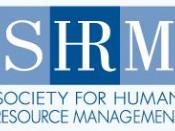ABSTRACT
The primary intention of the research offered in this paper was to examine four human resource management (HRM) practices. The paper first exhibits the height of variation in the field with respect to HRM models. The paper then goes on to observe significant human resource tendencies that have congealed over the past year. These tendencies will carry on presenting both challenges and opportunities for the Human Resource and Human Resource Information System professional over the next decade. It further elaborates on the principal challenges faced by managers in managing people today. The paper concludes with a debate on the authority of Human Resource models, which further displays the disagreeing points of view in this multifaceted and multidisciplinary field.
INTRODUCTION
The notion of human resource management has engrossed substantial consideration over the last two decades from scholars and practitioners equally. While fraction of the discussion has focused on its application and hypothetical fundamentals (Pinnington and Edwards, 2000; Armstrong, 1999; Beardwell and Holden, 1997 and Storey, 1992), the other has been on its dogmatic worth for the endurance of organizations in a chaotic and an unpredictable business atmosphere (Anthony et al, 1996: Brewster et al, 2000).
There are a lot of dissimilar views on how HRM first came about, some observers state that it was a innate evolution from motivational studies, some state that it was from the works of Drucker in the 1950's others state that it was just superior personnel management. HRM came to status during the 1980's when it became visible that conventional management techniques could no longer remain in an ever shifting business environment. Out went the customary focus of management, in came the perception of the growing business needing developing strategies.
HRM has assumed assorted implications and associations. While it has been used as a...



Great
very good
0 out of 0 people found this comment useful.